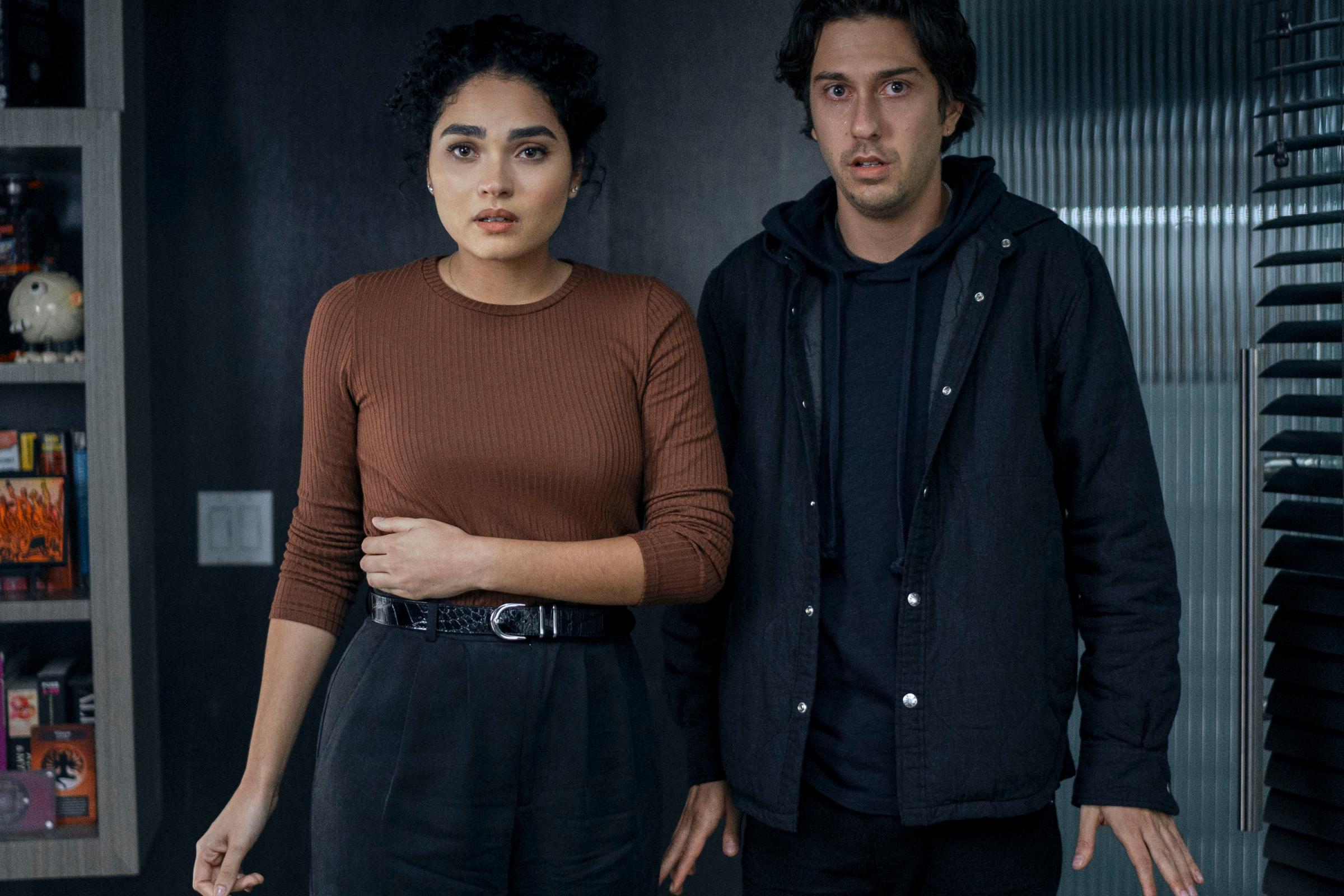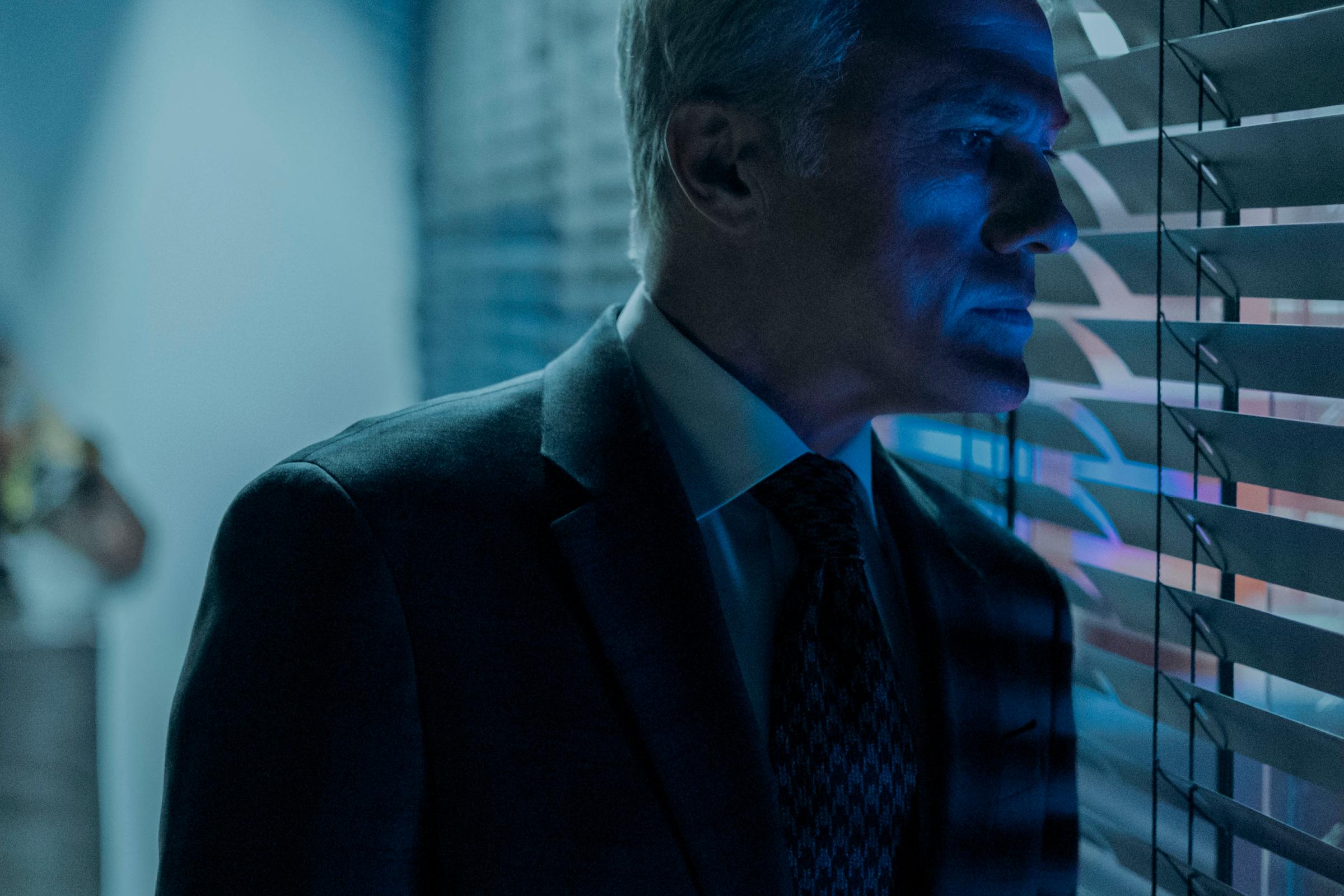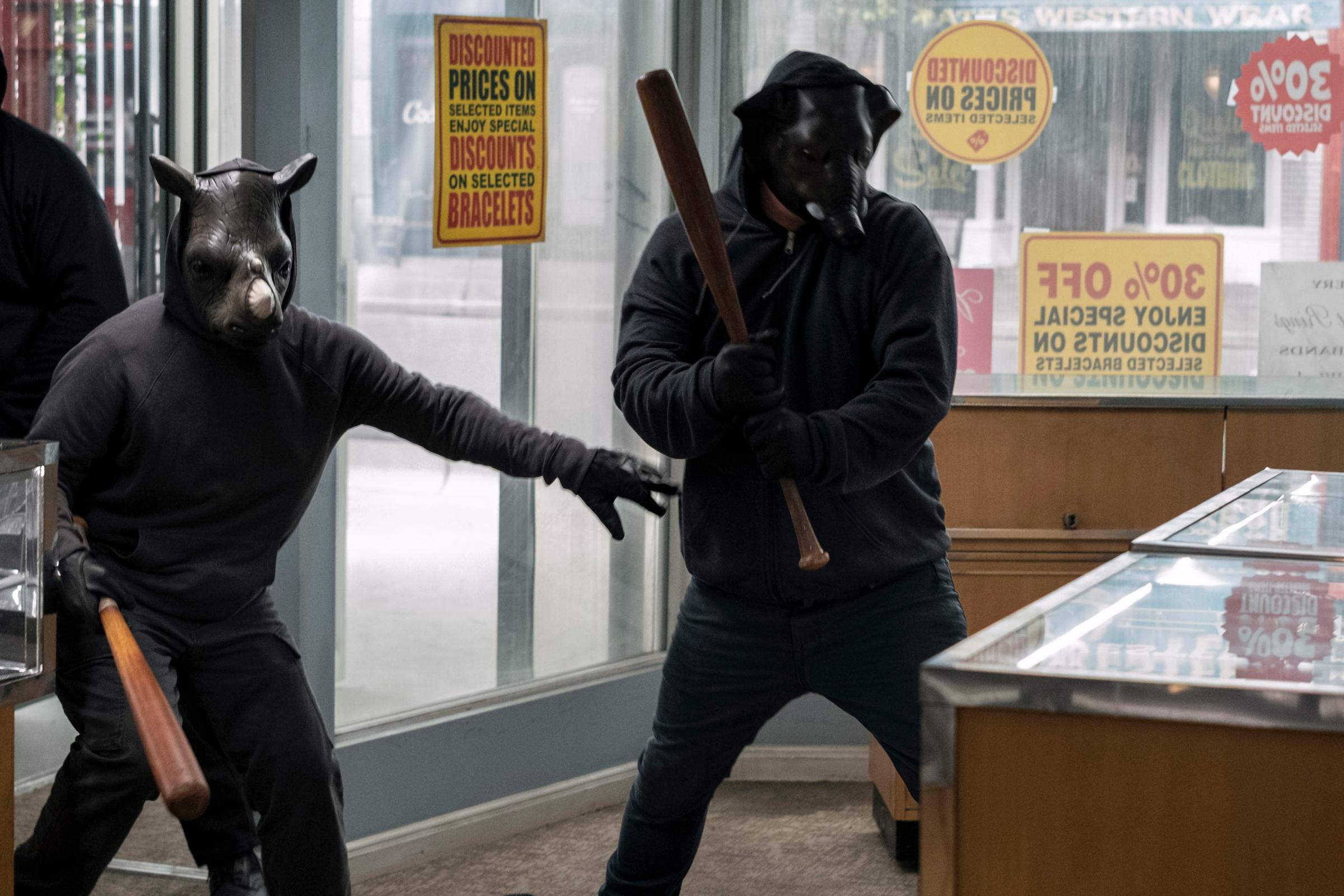If I were a narrative consultant hired to advise the creators of workplace TV shows, one thing I’d say is that they’re underutilizing a potentially rich character type: the management consultant. When it comes to crafting white-collar villains for the small screen, fearsome supervisors are a perennial choice and tyrannical tech titans are having a long, reality-mirroring moment. But the management consultant, last profiled at length in Showtime’s slick 2012 dramedy House of Lies, is at least as well qualified to fill the role of big bad. At worst, they’re pure parasites, latching on to companies they don’t understand and hacking away at pesky expenses like payroll and quality assurance, all while leeching huge sums out of the same budgets they’re brought on to deflate.
Regus Patoff, the title character of Amazon’s deeply weird thriller The Consultant, premiering Feb. 24, is not exactly desperate for a paycheck—nor are his cost-cutting measures the scariest items on his agenda. Played by the consistently terrifying Christoph Waltz, he materializes at mobile-game company ComWare just after a middle-schooler murders the 20-year-old founder, Sang (Brian Yoon), during a class trip. (The devil made him do it, the boy insists.) In fact, Mr. Patoff arrives at the office in the wee hours of the morning, and is greeted by two confused employees processing their feelings on Sang’s death: burned-out coder Craig (Nat Wolff) and Sang’s ambitious former assistant, Elaine (Brittany O’Grady), who’s adopted the title creative liaison as she searches for a better gig. He walks without apparent difficulty and seems otherwise healthy, but they practically have to carry him up the office staircase. So that’s odd.

By morning, Patoff has moved into Sang’s office—still a crime scene, with the victim’s blood splashed across the wall behind his desk—and assumed absolute authority over ComWare’s daily operations. In his first all-hands meeting, he gives all remote workers one hour to commute into the office; if they don’t, they’ll be fired effective immediately. Despite his hardcore leadership style, Patoff doesn’t seem to have done even the most cursory preparation for his new assignment. At one point, he casually asks an employee: “What do we make?”
Elaine and Craig (and, to a lesser extent, their co-workers who didn’t witness his overnight arrival) understand that, no matter what kind of contract Patoff got Sang to sign, this quietly intimidating stranger should not be allowed to seize control of the company. But ComWare, a business previously led by a child prodigy who never reached legal drinking age, doesn’t exactly have a functional org chart or a succession plan. Legal quibbles aside, it makes a certain kind of psychological sense that workers fearful of losing their livelihoods would submit to the will of a strong leader, however strange and ill-informed he happened to be.

It comes as no surprise—and is certainly not a spoiler to reveal—that Patoff is no typical ruthless management consultant. Sure, he mercilessly audits ComWare’s expenses, makes brutal staff cuts, and pushes his employees to work around the clock to complete inferior products that Sang would never have approved for sale. Mostly, though, he sows chaos. Shoes are banned from the office. Staffers get called into work in the middle of the night. Driven to distraction by a supposed foul odor that no one else can smell, he sniffs subordinates to locate the culprit. The questions that fuel The Consultant’s considerable suspense are: Who is Patoff, really? Where did he come from? What is his endgame? And how will Elaine and Craig, who bring their own emotional baggage to the situation, respond to the pressure he places on them?
It’s always refreshing to see timely social commentary delivered without a lecture, and the show’s portrait of irrational obedience to authority lands perfectly. But creator Tony Basgallop identifies thematically rich tensions between creativity and commerce, quality and efficiency, kindness and success—all relevant to the contemporary white-collar workplace—without really exploring them. Maybe it’s not so surprising that an Amazon original would tread lightly in dissecting corporate sins, but that reticence does keep the series from reaching the satirical heights of TV’s best recent workplace thriller, Severance.

Adapted from a 2016 novel of the same name by horror writer Bentley Little, The Consultant works best as a high-concept creature feature. And if you’ve seen Inglourious Basterds, either of the last two James Bond movies, or just about any of the Austrian-German actor’s other English-language movies, you know that no one plays a monster with more panache than Waltz. A slight, 5’7’’ man with a refined manner, he radiates a disconcertingly chilly calm. When any character refuses one of Patoff’s directives, he doesn’t raise his voice; he simply repeats what he wants done until they obey. He can also flirt or flatter when it behooves him to do so. Delighted by a mediocre phone game, the character’s serenity becomes almost childlike.
O’Grady and Wolff are smartly cast opposite Waltz. A Nickelodeon alum, he’s retained a child-star tenderness; she brings the same wide-eyed, Seventeen-cover-model ingenuousness that made her an ideal contrast to Sydney Sweeney in The White Lotus. Basgallop, a British screenwriter best known in the U.S. for collaborating with M. Night Shyamalan on the twisty Apple TV+ horror show Servant, keeps the pace fast (the half-hour runtime helps) and peppers each episode with breathtaking WTF moments (though they rarely get adequate follow-up). The Consultant is not the masterpiece it could’ve been. Fortunately, it’s also a far cry from the stupid, soulless, lowest-common-denominator product pumped out by the Regus Patoffs of the world.
More Must-Reads from TIME
- Donald Trump Is TIME's 2024 Person of the Year
- Why We Chose Trump as Person of the Year
- Is Intermittent Fasting Good or Bad for You?
- The 100 Must-Read Books of 2024
- The 20 Best Christmas TV Episodes
- Column: If Optimism Feels Ridiculous Now, Try Hope
- The Future of Climate Action Is Trade Policy
- Merle Bombardieri Is Helping People Make the Baby Decision
Contact us at letters@time.com